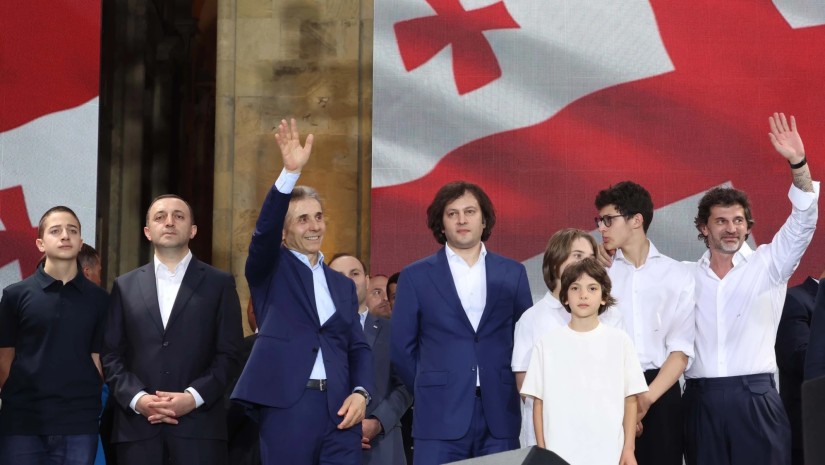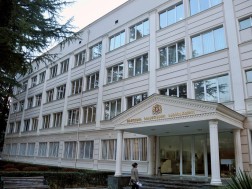According to the report published by the non-governmental organization "Fair Elections" (ISFED), "Georgian Dream" launched an unofficial pre-election campaign and highlighted state initiatives that contain signs of using administrative resources for electoral purposes.
While assessing the environment before the 2024 parliamentary elections, the organization states that the ruling party has started an unofficial pre-election campaign by implementing large-scale social projects."It is true that the official pre-election campaign starts 60 days before the elections, however, the ruling party started mobilizing the available resources, including the state resources, and unofficial pre-election campaign a long time ago. Traditionally, this campaign is characterized by the implementation of large-scale social projects. State initiatives were identified, which contain signs of using administrative resources for electoral purposes."Georgian Dream" actively used administrative resources in the preparatory work for the April 29 rally, which was held in support of the government policy and the "Transparency of Foreign Influence" law.
In February 2024, the government came out with an initiative to increase the pension of the military. This time too, the state resorted to the practice of writing off fines before the elections. In April 2024, the Minister of Finance announced the government's initiative to write off tax debts. In February 2024, it became known about the reduction of loan interest for pensioners. In February 2024, the Minister of Education, Science and Youth announced a paid internship program for students. Pre-election salary increases were recorded in one of the most important and numerous sectors of education," the report said.
In addition, according to the document, the sanctioning of the representatives of the legislative and executive authorities of Georgia by the US authorities will have an additional role in determining the nature of the pre-election campaign."When assessing the environment before the parliamentary elections of October 26, 2024, the following main trends were highlighted: parallel to the rapprochement with the European Union, anti-Western messages, including Eurosceptic ones, became stronger in the country. For the first time in the recent history of the country, the ruling party questioned the alternative of the pro-Western foreign policy course and European integration strengthened by the Constitution of Georgia, thereby trying to revise the existing pro-European consensus in the society; Despite the continuous protests of the Georgian society, numerous actions, as well as the harshest criticism of the President of Georgia, the European Union, European states, the US, the UN, the Secretary General of NATO, the Council of Europe, the OSCE and other international organizations, in May 2024, the Parliament passed the "Foreign Influence" "On Transparency" was adopted again in all three readings and it overcame the veto set by the President. It should be noted that the law will have a particularly negative impact on those local observation organizations that plan to monitor the October 26, 2024 elections. Some of the organizations may face the threat of forced termination of work; The representatives of the legislative and executive authorities of Georgia, for the first time in the country's history, were appointed by the US authorities, which will probably have an additional role in determining the nature of the pre-election campaign; Among the steps taken by the government that violate human rights and damage the European integration process, there is the initiation of constitutional amendments and a package of legislative amendments against the LGBTQI community; After the previous parliamentary elections, a number of changes were made in the electoral legislation of Georgia, although the recommendations of the Venice Commission of the Council of Europe, the Office of Democratic Institutions and Human Rights of the OSCE (OSCE/ODIHR) and local monitoring organizations are still insufficiently reflected. In the period before the parliamentary elections, the media environment has deteriorated sharply. Social media is also sharply polarized," the report says.























